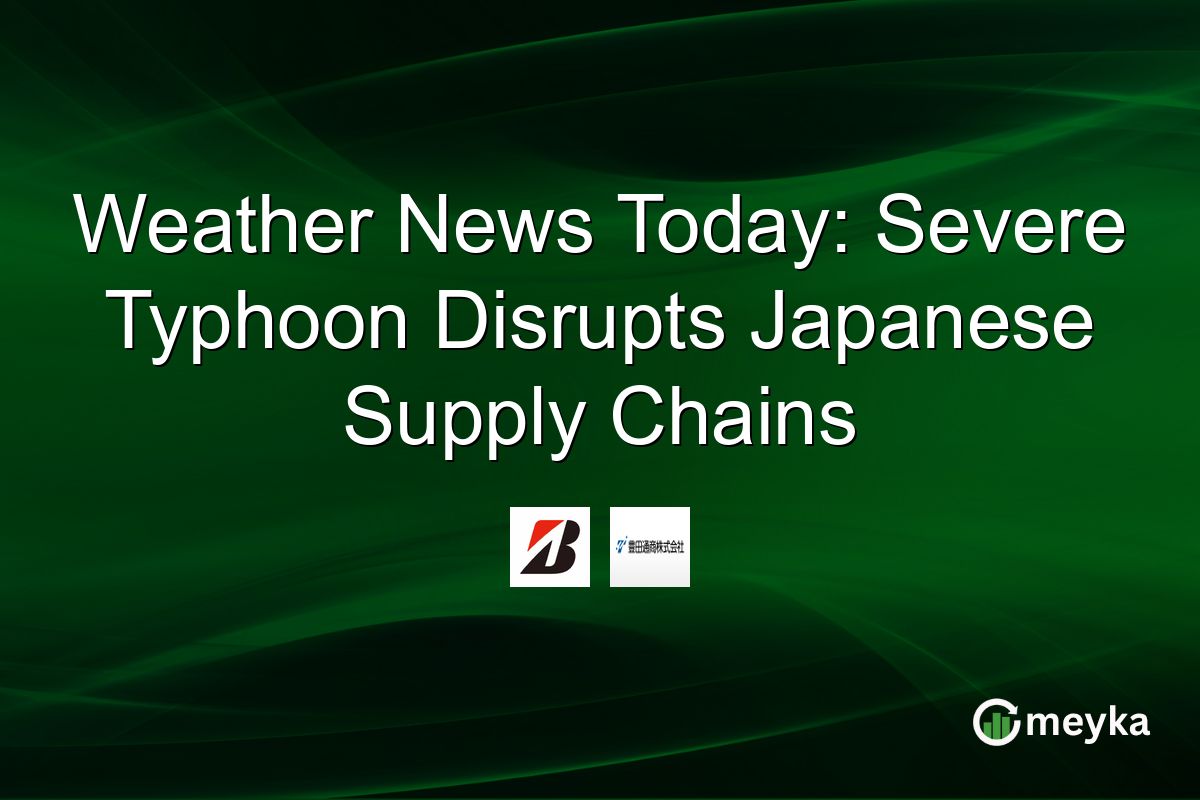Weather News Today: Severe Typhoon Disrupts Japanese Supply Chains
This week, a severe typhoon hit Japan, significantly impacting its economy. The storm caused major disruptions in supply chains, affecting logistics and manufacturing sectors. Companies like Bridgestone and Toyota Tsusho reported temporary shutdowns, highlighting the vulnerability of businesses to such natural events. These disruptions are creating waves in the stock market, with investors closely monitoring affected sectors.
Economic Impact of the Typhoon on Japan
Japan’s economy is grappling with the aftermath of a powerful typhoon that has caused extensive damage. Key industries are facing operational halts and logistical delays, disrupting supply chains across the country. This has heightened concerns over the stability of Japan’s robust manufacturing sector. Read more on Reuters. Bridgestone, under the stock symbol 5108.T, is among the companies hardest hit. The firm, which manufactures a wide range of rubber and tire products, temporarily suspended some operations, leading to a decline in stock activity. While the stock remained steady at ¥6829.0, analysts are cautious about future revenues and supply chain recovery efforts.
Supply Chain Disruptions in Focus
The storm has exposed vulnerabilities in Japan’s supply chains. Companies are struggling to maintain operations amidst power outages and transportation issues. Supply chain disruptions in Japan have resulted in increased delivery times and costs, heavily affecting industries dependent on timely logistics. Toyota Tsusho, symbol 8015.T, reports significant delays in delivering automotive parts and equipment. The company’s stock price is ¥4154.0, with investors wary about long-term supply chain impacts. Market sentiment reflects a steady decline as the company scrambles to address shortfalls. Bloomberg highlights how these disruptions could influence stock movements and market confidence in Japan’s economic resilience.
Insurance Claims and Financial Implications
The financial sector is also feeling the ripples of the typhoon through increased Japanese insurance claims. As businesses assess damages, insurance companies are bracing for a surge in claims related to physical damages and business interruptions. This scenario could further strain the industry and affect profitability. CNBC reports that insurers are setting aside reserves to prepare for potential payouts, highlighting the financial burden such natural disasters impose on the sector.
Final Thoughts
In conclusion, the severe typhoon in Japan underscores the critical importance of robust supply chain management and the readiness of financial sectors to absorb shocks. As major companies like Bridgestone and Toyota Tsusho face operational hurdles, investor focus shifts to recovery strategies and the insurance sectors’ ability to handle claims efficiently. The ongoing challenges could shape policies and strategies around disaster management and economic resilience in the future.
FAQs
The typhoon has disrupted supply chains, causing delays in logistics and halts in manufacturing, leading to economic instability and affecting stock market performance.
Stocks of affected companies like Bridgestone and Toyota Tsusho have become volatile. Investors are concerned about the financial impact of disruptions, which affects market sentiment.
Insurance companies face increased claims due to damages. This escalates financial pressure, requiring them to reserve funds for potential payouts, affecting profitability.
Disclaimer:
This is for information only, not financial advice. Always do your research.






